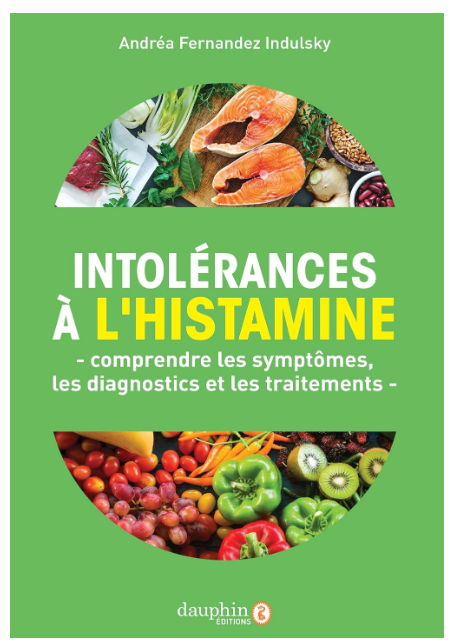Iron deficiency anemia - when the body lacks iron ...1/3
Iron-deficiency anemia - When the body lacks iron
Today, we're tackling a common but often underestimated health problem: iron-deficiency anemia. This type of anemia is caused by a lack of iron in the body, and you'll see that it can affect much more than your energy levels. We'll tell you all about it!
What is iron-deficiency anemia?
Iron deficiency anemia occurs when the body lacks iron, a key element in the production of hemoglobin, the protein that carries oxygen in the blood. When iron levels are insufficient, the body's ability to oxygenate tissues decreases, leading to a variety of symptoms.
What are the symptoms?
There are many symptoms of iron-deficiency anemia. Here are the most common, as well as some lesser-known symptoms associated with iron deficiency:
Excessive fatigue: you feel constantly exhausted, even after a full night's sleep.
Pallor: skin often becomes lighter than usual.
Shortness of breath Breathlessness: even after light activity.
Palpitations ❤️ rapid or irregular heartbeat.
Chronic hair loss ♀️ : iron deficiency can lead to continuous hair loss.
Hypothyroidism Hypothyroidism: iron helps convert T4 into T3, two essential thyroid hormones. A lack of iron can aggravate the symptoms of hypothyroidism (fatigue, weight gain, coldness), and women, who are more often iron-deficient, are also more prone to this disease.
Insomnia Iron is necessary for the production of melatonin, the sleep hormone. A deficiency can lead to sleep disorders such as insomnia.
Restless legs syndrome Often linked to calcium metabolism disorders, this syndrome manifests itself as an irresistible urge to move the legs, especially at night.
Blood values to know
Iron is stored in the body in the form of ferritin, and it's this ferritin level that a doctor measures to assess iron stores. Here are the normal values:
Normal ferritin level: between 20 and 400 nanograms per millilitre (ng/ml) of blood.
However, iron deficiency may be suspected with a ferritin level below :
80 ng/ml in women
120 ng/ml in men
This explains why many women suffer from iron deficiencies often linked to their menstrual cycles but uassi linked to their distaste for red meat, and are more frequently affected by problems such as hypothyroidism and chronic hair loss.
What are the causes of iron-deficiency anemia? ♀️
Several factors can lead to iron deficiency:
Insufficient iron intake ️ an iron-poor diet, e.g. a poorly balanced vegetarian or vegan diet.
Blood loss: heavy menstruation or internal bleeding, such as an ulcer, can reduce iron reserves.
Increased need for iron: during pregnancy or breastfeeding, the need for iron increases.
Reduced absorption: certain diseases, such as celiac disease, can reduce the body's ability to absorb iron.
How is it diagnosed?
The doctor will prescribe a blood test to measure ferritin and haemoglobin levels. If these values are low, he will confirm iron deficiency and suggest treatment.
How is iron-deficiency anemia treated?
Treatment is based on :
Iron supplements: in tablet form, to be taken for several weeks or months, depending on the severity of the deficiency.
An iron-rich diet: choose iron-rich foods, especially those of animal origin, which are better absorbed by the body.
Iron-rich foods
Here are a few categories of foods to include in your diet to meet your iron needs:
Meats :
Red meat
Offal (liver, heart)
Black pudding
Pigeon, duck
Pulses and vegetables :
Lentils, chickpeas, kidney beans
Spinach, kale
Nuts and seeds :
Pumpkin seeds, walnuts, almonds
Don't forget that vitamin C (found in citrus fruits, peppers and broccoli) promotes the absorption of plant-based iron, so remember to include some in your meals.
Prevention: How to avoid iron-deficiency anemia? ️
Eat a balanced diet: rich in iron and vitamin C .
Keep an eye on your heavy periods: talk to a healthcare professional if they are very heavy.
Anticipate increased needs: for example, in the event of pregnancy, it is often advisable to monitor iron levels and adapt your diet.
In a nutshell
Iron-deficiency anemia can have more far-reaching consequences than you think, affecting sleep , the health of your hair ♀️ , your thyroid hormones , and even causing disorders like restless legs syndrome . However, once detected, it can be effectively treated with iron supplements and a suitable diet . Don't hesitate to check your ferritin levels without a prescription from eurofins laboratories.
Here's the QR code for a product rich in iron and cofactors that won't upset your stomach or cause constipation.



